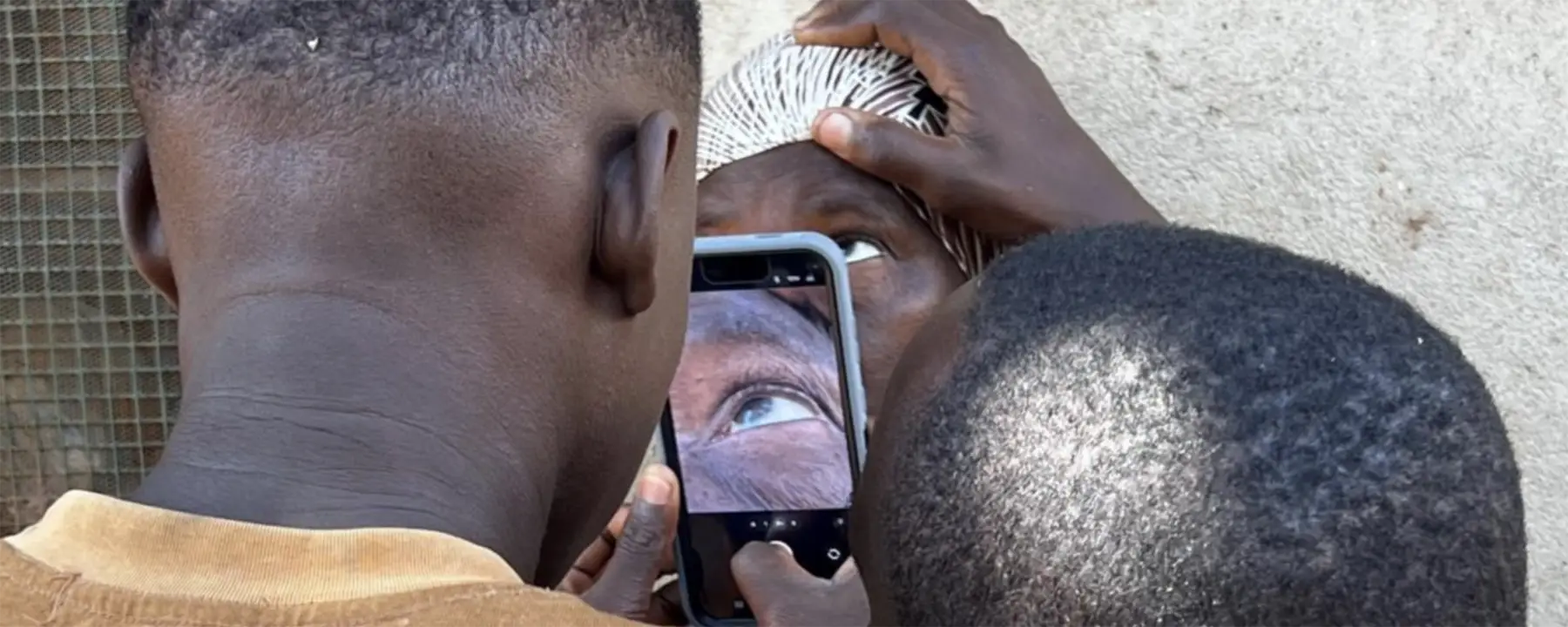Since 2006, RTI has led NTD programs and partnered with a variety of multilateral and private donors to reach over 65 countries with training, technical support, and resources to improve the impact and effectiveness of NTD services. In 2018, RTI committed $3 million of its own funding to accelerate research and develop innovations to eliminate NTDs.
What is Trachoma?
Trachoma is a preventable disease that causes suffering and blindness, particularly in more vulnerable populations. It results from repeated ocular infections that lead to scarring of the eyelid. Scarring causes the eyelid to turn inwards, and the eyelashes scratch the eye, a condition called trachomatous trichiasis (TT). Without treatment, TT can lead to irreversible blindness.
Timely surgery to return the eyelashes to their normal position can prevent blindness. However, most individuals with TT live in remote parts of LMICs where healthcare resources are limited. Countries are targeting the elimination of trachoma as a public health problem by 2030, and this requires providing surgery to those in need. RTI partners with countries to improve interventions aiming to achieve their trachoma elimination goal.
Countries are designating community members to go door-to-door to screen community members for trichiasis. However, this has proven to be a challenge to ensure standardized outcomes from one community to the next and to be certain they are identifying the populations truly at risk.
Classifeye™ App Improves Accuracy in the Diagnosis of Trachoma
To address this challenge, researchers at the University of North Carolina at Chapel Hill and at RTI created a new smartphone-based app, called Classifeye™ TT Screener, that uses a machine learning algorithm to assess photos of eyelids and detect TT. The goal of this app is to increase the accuracy of case identification.
We tested the app in Ethiopia and Mozambique using trained TT graders and recorders. The algorithm had 93% accuracy and identified 15% more true TT cases than the trained graders. With this high accuracy, TT Screener could be a powerful tool to assist health workers in identifying and referring patients for care globally.
The app continues to be evaluated and improved, with more recent testing in Senegal and Tanzania, with the intention of making it available to the public free of charge. UNC and RTI are also available to support further evaluation of the app for other trachoma applications, such as the assessment of patients who present with eye problems once trachoma has been greatly reduced in a country.

